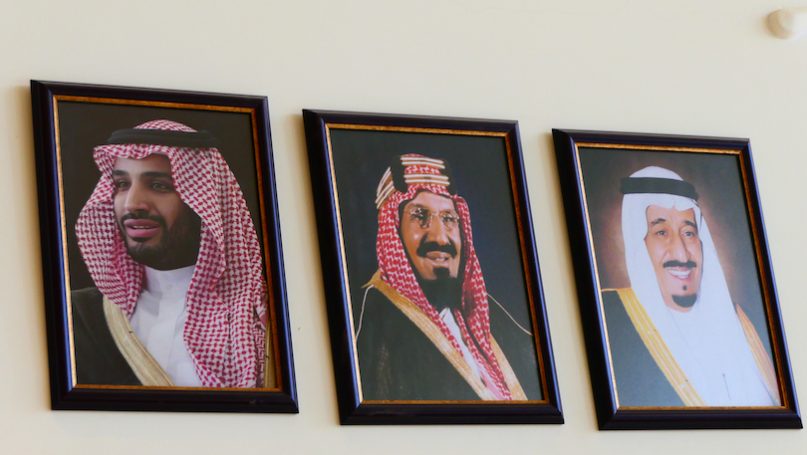
Saudi Arabia celebrated its 90th national day on 23 September 2020. The celebration events reflected the changes within the Kingdom and its international stature as an important partner of the global powers. The Kingdom is undergoing a wide transformation slowly fulfilling the dreams of Vision 2030 and has, in the past few years, accentuated its economic and strategic partnerships with Asian powers which remain central for the plan. In 2017, King Salman completed his month-long Asia tour aimed at building ties with premier importers of Saudi oil and promoting a wide array of investment opportunities. Two years later in 2019 Saudi Arabia’s Crown Prince Mohammed Bin Salman (MBS) completed his own Asia tour carefully focussing on Saudi Arabia’s strategic and economic partners in Asia.
Over time, Saudi Arabia has recalibrated its foreign policy priorities and has been largely successful in maintaining domestic stability amid unprecedented conflicts and crises in the region. One of the most important aspects of Saudi Arabia’s foreign policy has been its ability to engage with its partners ascertaining the long-term significance amid the changing global geopolitical landscape. In the current context, India, China, Japan, South Korea, and Singapore remain the most important clients for Saudi oil, and Riyadh’s accentuated ties with all these countries embody the importance of the Kingdom’s engagement with Asian powers especially in accentuating the energy partnerships.
One of the central agendas of Vision 2030 is to transform Saudi Arabia into a global investment powerhouse – and New Delhi and Beijing will play crucial roles in the coming years. Saudi Arabia enjoys functional cooperation with Beijing and remains a strong ally of Washington. However, in recent years there have been certain reconsiderations in the Kingdom’s engagement with Beijing amid the coronavirus-hit oil demand crash. The Kingdom has also slowly widened the prospects for an active economic engagement with ASEAN in recent years. In this process, Saudi Arabia and its partners in GCC have achieved progress in ASEAN-GCC Free Trade Area and institution-building aspects like the Ministerial meeting between the GCC and ASEAN indicating positive signs for future cooperation.
Saudi Arabia is home to a large South Asian diaspora and historic and civilizational ties propel the diplomatic and economic engagement with the Kingdom. India has affirmed the importance of the Kingdom in its foreign policy bandwidth through high-level bilateral visits and further locating the importance of Saudi Arabia in its ‘Link West’ policy.
Saudi Arabia’s engagement with Pakistan has been a focal point in the Kingdom’s pivot to Asia. Both countries have identified key economic, strategic, and military domains to emblazon one of the long-lasting Islamic alliances in the world. The recent rift between Pakistan and Saudi Arabia concerning the lukewarm response from the Organisation of Islamic Cooperation (OIC) towards the issue of Kashmir will likely be shrugged off in the long-term as both countries have deepened their ties on the strategic front. Saudi Arabia’s balancing act in South Asia between India and Pakistan projects the geopolitical pragmatism the Kingdom has adopted over the years.
Saudi Arabia’s engagement with the US largely remains strong and consistent and the Kingdom is simultaneously increasing its economic engagement with Asian powers which has been more apparent in the last decade. Saudi Arabia’s ‘Look East’ diplomacy came to the fore during the rule of King Abdullah and evolved over time strengthening the Kingdom’s partnerships with several Asian powers. The fulcrum of engagement with these Asian powers remain diversification of the economy and stabilizing the energy partnerships. In the current context, the Kingdom’s economic relationship with Asia is largely dominated by the energy demands of the economic and military powers of Asia. However, much focus has been given to infrastructure, technology, tourism, and advanced manufacturing domain in recent years.
Several Indian business enterprises in the Kingdom have called for widening investment opportunities in non-oil sectors under the Vision 2030 plan. India has been one of the biggest trading partners of the Kingdom and it further encapsulates the significance of the bilateral relationship between both the countries especially people-to-people engagement which remains essential in any partnership.
With more than half of the Saudi population under the age of 25, the Kingdom is carefully projecting its foreign policy priorities creating a strong foundation for its young people with huge investments from South Asia and East Asia in the technological and educational sectors. While celebrating the 90th anniversary, Saudi Arabia aims to look at a future that can give its young people opportunities, and the Kingdom’s pivot to Asia reflects the intent of securing long-term economic and strategic cooperation with Asian powers.
Further Reading on E-International Relations
- Opinion – The Contours of the Saudi Arabia-Pakistan Relationship
- Authoritarian Reformism in Saudi Arabia
- Saudi Arabia’s ‘Vision 2030’: Will It Save Or Sink the Middle East?
- Saudi Arabia’s Neom Project, the Howeitat Conflict and Tribe-State Relations
- Opinion – China’s Saudi-Iran Deal and Omens for US Regional Influence
- The Saudi-Lebanon Imbroglio and Geopolitical Realignments in West Asia